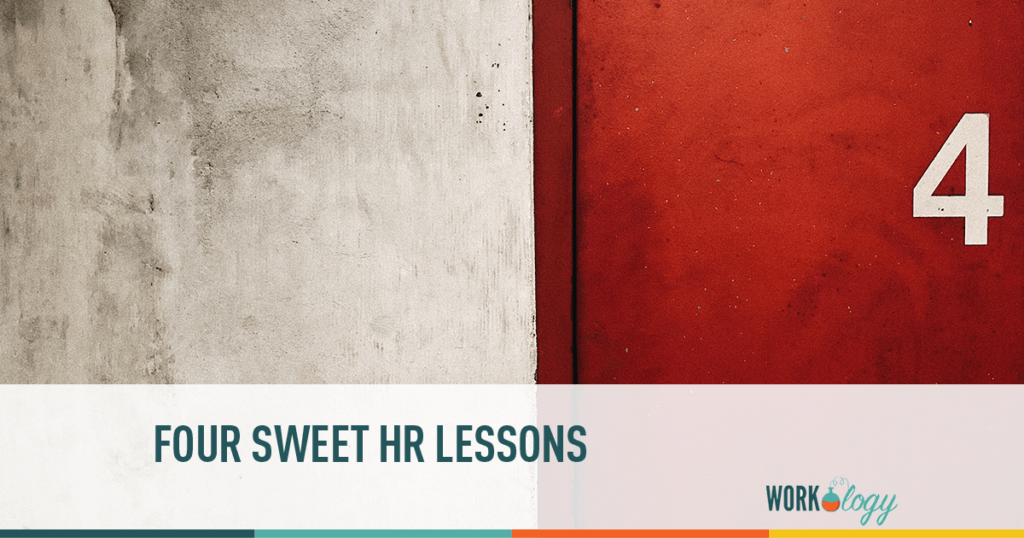I have had the very good fortune to hear a presentation from Kat Cole, President of Cinnabon, who has the distinction of being one of the few company presidents to come through a Human Resources position. Kat has wisdom beyond her years and she provided some compelling lessons.
Connections to make change
After hearing Ms. Cole’s presentation I visited her blog site (how many company presidents do you know that blog?) to see what she had to say. What I found were some HR lessons from her business wisdom. In a post called Be a Changer she talked about how important it is to make connections in order to enact change and to be a successful business. Her four connections were:
- Connect the business to the communities we serve.
- Connect with local, state and federal governments to address relevant challenges.
- Tie philanthropy and charitable investments right into the core of the business.
- Connect the business with the value of your employees.
Connect to employees
Kat talks of these in terms of connecting with customers. I want to apply these to dealing with your employees. In connection 1 she says it is important to be a part of the community from which the company’s customers come. I think the same applies to employees. Ask these questions:
- Do you know where your employees live?
- How might you be able to get involved with the activities and events of that community?
- Can you become a partner in education with some of the schools your employees’ children attend?
Her third connection deals with charitable events and philanthropy, however she says just giving money is not enough.
- Are there events going on in your employees’ communities that you can supply labor for?
- Are there boards for various organizations that could use some business expertise?
- How about giving employees paid time off to work on activities that benefit their communities?
Helping to improve society
Her fourth connection deals with values. She says, “You must connect what you are doing with the values of your own employees; because businesses don’t have values and ethics … it’s the people representing your business that have values and ethic.” She adds “When employees enter a company that is seen to be improving society, employees bring their whole selves to work. It makes them better employees. It makes them better ambassadors, and by the way it also makes it easier to attract future top talent.” I don’t think I can improve on that.
Know what is going on
Kat’s second connection doesn’t deal some much with employees, but it is good HR advice. You cannot affect legislation on any level after it is passed. You need to know what is being proposed so you can have some impact on what ultimately passes. Legislators want to hear from their constituents and a word of input from a company representative can be very powerful.
Treat your employees as customers
In conclusion treat your employees as more than just a paycheck recipient. Treat them as customers and valued members of the community in which the business operates, even if you make a product or sell a service that is not used locally. You will be valued more by people you value.
How many of you follow these princples? Do they help your organization?










2 Comments
This is a great post, Mike. Kat is amazing. I’ve known her for a while before she got the CEO gig. She is an inspiration. Thanks for sharing.
JMM
Great article! I think these steps take employee relations to a whole new level. Thanks for sharing!
Comments are closed.